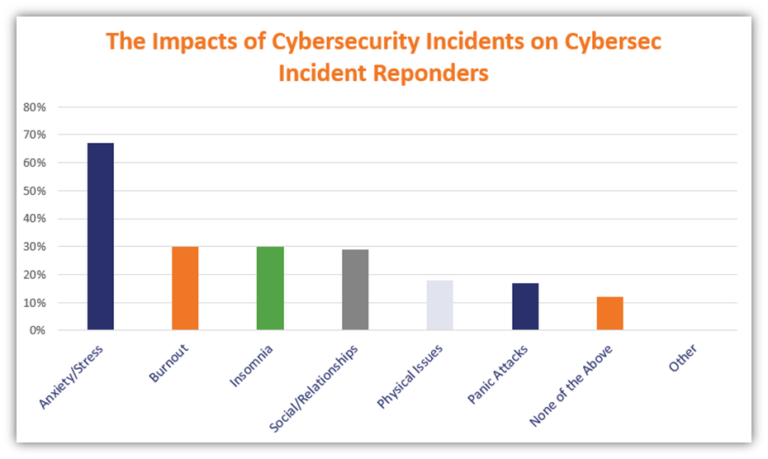Summer Contractor Scams: How to Protect Yourself
Summer contractor scams are a growing concern as the warm months draw in homeowners looking to spruce up their properties. Unfortunately, this season of relaxation also attracts fraudulent contractors who exploit the hustle and bustle of summer routines. These scams often manifest as home repair scams, where fraudsters offer quick fixes that ultimately leave homeowners worse off. From storm chasers capitalizing on recent weather damage to deceptive claims about repairs, it is crucial to stay vigilant. In this article, we will explore how to identify contractor fraud and provide actionable tips to avoid scams that could turn your summer dreams into nightmares.
As the sunny season approaches, many homeowners find themselves in need of repairs and renovations, making them prime targets for unscrupulous contractors. These summer scams often include schemes that promise fast and affordable solutions but can lead to disaster instead. It’s essential to recognize the signs of contractor deception, which can range from exaggerated estimates to incomplete work. With the influx of visitors during the summer months, the risk of falling victim to home repair scams and car repair fraud increases significantly. This article will guide you on how to safeguard your investments and steer clear of dishonest contractors.
Understanding Summer Contractor Scams
During the summer months, homeowners often find themselves more susceptible to contractor scams due to the seasonal nature of repairs and renovations. Storm season exacerbates this issue, as many homeowners face urgent repairs after damaging weather events. Scammers, often referred to as ‘storm chasers,’ capitalize on these situations by swooping into affected areas and offering their services. Unfortunately, these fraudsters can leave homeowners with incomplete work, subpar materials, or, in some cases, no work at all, leaving them vulnerable to further damage.
Home repair scams can be particularly deceptive. Scammers may present themselves as legitimate contractors, complete with uniforms and business cards, making it difficult for homeowners to identify fraud. They may promise quick repairs at low prices, but these offers often come with hidden costs or shoddy workmanship. Homeowners must be vigilant, researching any contractor thoroughly and being wary of deals that seem too good to be true.
Protecting Yourself from Contractor Fraud
To safeguard against summer contractor scams, homeowners should adopt a proactive approach when hiring. Start by obtaining multiple estimates from different contractors, ensuring that you compare not just price but also the scope of work proposed. Always request written estimates and contracts, as these documents serve as important records should disputes arise. Additionally, it’s crucial to verify the contractor’s licensing and insurance status to avoid any surprises later on.
Another effective strategy is to contact your insurance company before engaging a contractor. They can provide guidance on coverage for repairs and may even recommend trusted local contractors. It’s also wise to resist high-pressure sales tactics often employed by scammers. Take your time in making decisions, and consult trusted friends or family for recommendations. By remaining vigilant and informed, homeowners can significantly reduce their risk of falling victim to contractor fraud.
Common Types of Home Repair Scams
One of the most prevalent types of home repair scams during the summer is roofing fraud. After storms, many homeowners seek immediate repairs, making them prime targets for unscrupulous contractors. These scammers may offer quick fixes that fail to address the root of the problem, ultimately leading to more extensive damage and costly repairs down the line. It’s essential for homeowners to recognize red flags, such as contractors who demand full payment upfront or those who lack proper credentials.
Another common scam involves the promise of discounted services or materials, often presented by contractors who travel from out of town. These ‘door-to-door’ solicitors may pressure homeowners into making quick decisions without sufficient time to do their research. To avoid falling victim to these tactics, homeowners should always take the time to verify the legitimacy of any contractor and to consult local reviews or the Better Business Bureau before proceeding with any agreements.
Recognizing Storm Chasers
Storm chasers are contractors who follow severe weather patterns, targeting areas recently impacted by storms to solicit repair work. While some of these contractors are legitimate, many are not. They often lack local references and may employ aggressive sales tactics to secure contracts. Homeowners should be particularly cautious of unsolicited offers for repairs, as these can lead to contractor fraud and inadequate work.
To protect yourself from storm chasers, it’s vital to conduct thorough research. Look for local businesses with established reputations and positive customer feedback. Verify their licensing and insurance to ensure they meet local regulations. By being informed and cautious, homeowners can distinguish between trustworthy contractors and those looking to exploit a vulnerable situation.
Avoiding Car Repair Scams This Summer
As families hit the road for summer vacations, car repair scams become increasingly prevalent. With the rise in travel, the chances of vehicle breakdowns also increase. Scammers may prey on unsuspecting drivers, offering inflated repair costs or unnecessary services. It’s crucial for vehicle owners to recognize these scams and protect themselves while on the road.
To avoid falling victim to car repair fraud, always seek written estimates before consenting to any repairs. This practice helps ensure transparency and provides a reference point for any future disputes. Additionally, consider visiting multiple repair shops to compare services and prices. A reputable shop will provide clear, upfront information regarding repairs and their costs, making it easier to identify potential scams.
Tips for Choosing a Reliable Contractor
When it comes to hiring a contractor, especially during the busy summer months, having a checklist can streamline the process and reduce the risk of scams. Begin by researching potential contractors online, checking their ratings and reviews on platforms like the Better Business Bureau. Look for testimonials or case studies that demonstrate their reliability and quality of work.
Another essential tip is to ask for references from previous clients. A reputable contractor should be willing to provide contact information for satisfied customers. Speaking to these references can give you insight into the contractor’s work ethic, reliability, and quality of service. Don’t hesitate to trust your instincts; if something feels off, it’s better to walk away and find someone else.
Understanding the Importance of Written Contracts
One of the most effective ways to protect yourself from contractor fraud is to insist on a written contract before any work begins. This document should outline the scope of work, timelines, payment schedules, and any warranties or guarantees. A detailed contract helps clarify expectations for both parties and serves as a legal safeguard should disputes arise.
Also, be cautious of any contractor who is unwilling to provide a written contract or pressures you to sign quickly. This could be a sign of a scam. A legitimate contractor will understand the importance of documentation and will be more than willing to provide clear terms of service. By securing a written agreement, you can reduce the likelihood of misunderstandings and hold the contractor accountable for their work.
The Role of Insurance in Protecting Against Scams
Homeowners insurance can play a critical role in safeguarding against contractor fraud. In the event of damage from storms or other disasters, having comprehensive insurance coverage can ease the financial burden of repairs. It’s essential to fully understand your policy, including what is covered and any specific procedures for filing claims.
Before hiring a contractor, consult with your insurance agent to clarify how repairs will be handled and what documentation is required. This step ensures that you are prepared and informed, reducing the likelihood of falling prey to unscrupulous contractors who may take advantage of a stressful situation. Additionally, keeping receipts and records of all transactions related to repairs can help facilitate a smoother claims process.
Staying Informed About Scams
Awareness is key when it comes to avoiding scams, whether they are related to home repairs or vehicle maintenance. Staying informed about the latest scam tactics can equip homeowners and drivers with the knowledge they need to avoid falling victim. Regularly checking resources such as consumer protection websites or local news alerts can provide valuable insights into emerging scams in your area.
Furthermore, sharing information with friends and family can help create a community of vigilance against fraud. By discussing experiences and warnings, individuals can better protect themselves and their loved ones from contractor fraud and related scams. The more informed you are, the better prepared you will be to recognize and avoid potential pitfalls.
Frequently Asked Questions
What are the most common summer contractor scams to watch out for?
During summer, homeowners are particularly vulnerable to contractor scams, especially home repair scams related to storm damage. Fraudulent contractors often masquerade as legitimate storm chasers, offering quick fixes for roofing and other repairs without proper licensing or the ability to deliver on their promises.
How can I avoid contractor fraud during the summer months?
To avoid contractor fraud in the summer, always get multiple estimates, verify the contractor’s licensing, and insist on written contracts. Be wary of high-pressure sales tactics and conduct thorough research, including checking reviews on the Better Business Bureau.
What should I know about storm chasers and contractor scams?
Storm chasers are out-of-town contractors who solicit business after a natural disaster. While some may be legitimate, many engage in contractor fraud by offering subpar repairs or failing to complete the work. Always verify their credentials and check local reviews before hiring.
Are roofing scams common during the summer?
Yes, roofing scams are prevalent in the summer, particularly after storms. Fraudulent contractors may offer temporary fixes that do not address the underlying damage, leaving homeowners vulnerable to further issues. Always get a detailed estimate and ensure the contractor is properly licensed.
What steps should I take if I suspect a home repair scam?
If you suspect a home repair scam, cease any communication with the contractor, document all interactions, and report the issue to local authorities and the Better Business Bureau. It’s also advisable to contact your insurance company for guidance on how to proceed.
How can car repair scams affect me during the summer?
Summer is a peak time for travel, and car repair scams can arise from breakdowns or accidents. Scammers may inflate repair costs or use unsafe parts. To protect yourself, always request written estimates, check the shop’s reputation, and seek multiple opinions before authorizing repairs.
What are some warning signs of car repair fraud?
Beware of car repair fraud if a shop pressures you for immediate decisions, refuses to provide a written estimate, or suggests unnecessary repairs. Always ensure that the mechanics are certified and that the shop has a good track record with customer complaints.
How can I protect myself from contractor scams while on vacation?
To protect yourself from contractor scams while on vacation, consider securing your home and informing a trusted neighbor to monitor any unexpected visits. Avoid hiring contractors based solely on door-to-door solicitations and ensure any contractor you hire has verifiable credentials.
What can I do if I’ve already been a victim of contractor fraud?
If you’re a victim of contractor fraud, document all evidence, report the incident to local law enforcement, and file a complaint with the Better Business Bureau. You may also want to consult an attorney for potential legal action or seek assistance from consumer protection agencies.
How can I find reputable contractors during the summer?
To find reputable contractors during the summer, start by asking for referrals from friends or family, check online reviews, and consult the Better Business Bureau. Always interview several contractors, check their licensing, and request written estimates before making a decision.
| Scam Type | Description | Prevention Tips |
|---|---|---|
| Contractor / Home Repair Scams | Fraudulent contractors take advantage of homeowners during summer storms, often offering quick fixes without proper repairs. | – Get multiple estimates. – Get everything in writing. – Check contractor’s licensing. – Research contractors with the Better Business Bureau. – Resist high-pressure sales tactics. |
| Car Repair Scams | With increased summer travel, car repair scams include inflated bills and unnecessary repairs. | – Request written estimates. – Ensure repairs are guaranteed. – Check the shop’s BBB history. – Get multiple estimates. – Look for certified auto mechanics. |
Summary
Summer contractor scams are a significant concern for homeowners and travelers alike. During the summer months, fraudsters exploit the distractions of vacations and storms, targeting individuals in need of home repairs or vehicle maintenance. By staying informed and following preventative measures, such as obtaining multiple estimates and verifying contractors’ credentials, homeowners can protect themselves from these deceptive practices. Remember, being vigilant during the summer can help you avoid the pitfalls of contractor scams and ensure a worry-free season.







